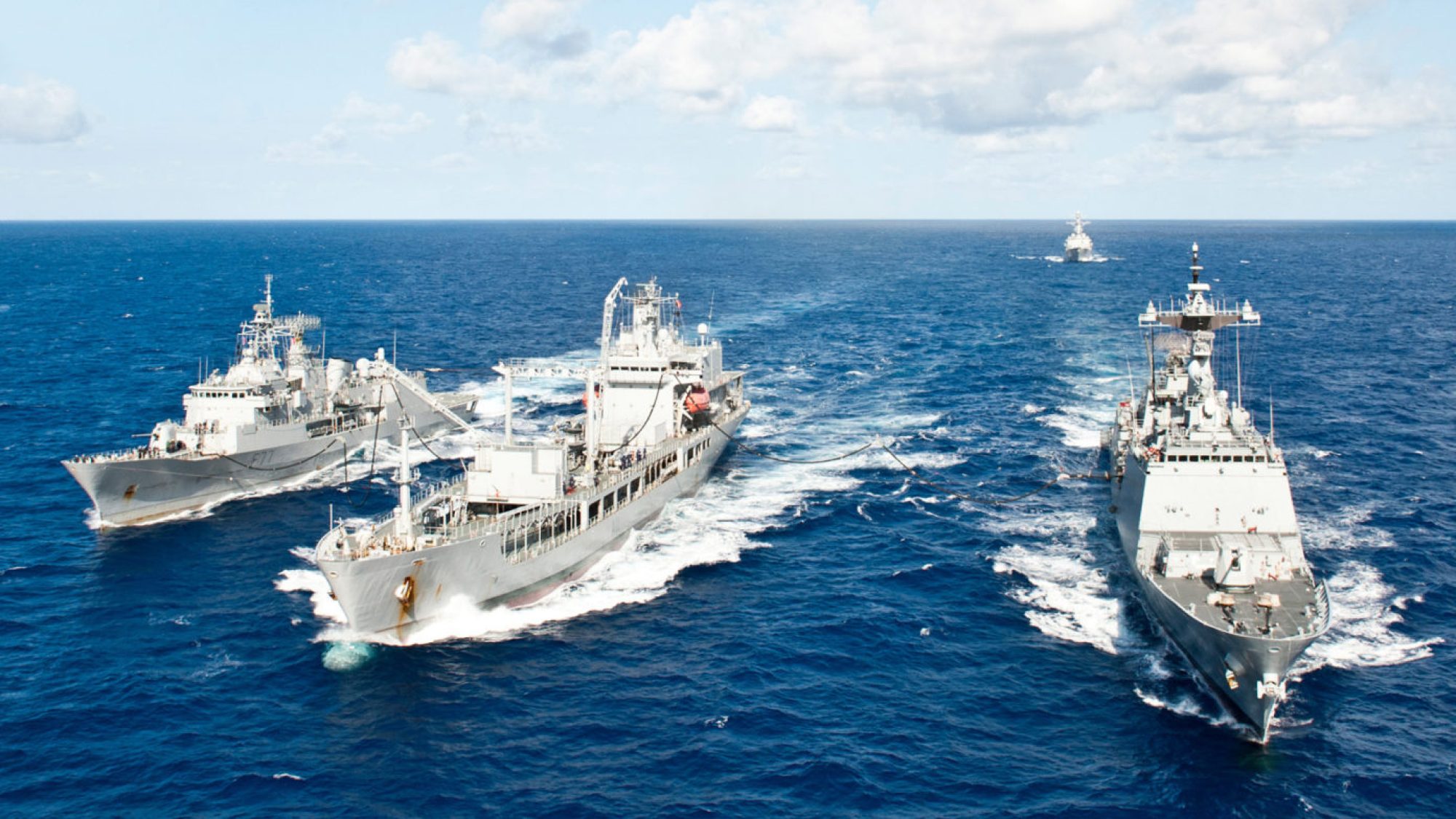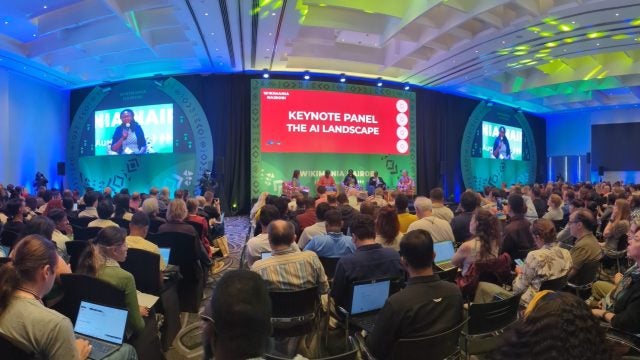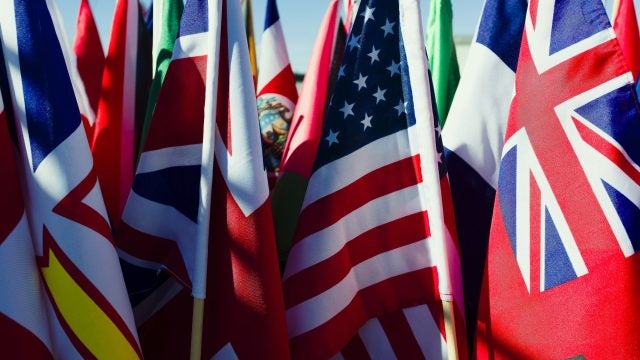
Title: US Diplomacy and the Pacific Islands: Risk of Over-Promising and Under-Delivering
The United States shares historical ties and fundamental principles with the Pacific islands. While increased US attention on the Pacific Islands is welcomed, US credibility, as well as America’s preeminent position, will be at risk if claims of a new commitment to the region are not matched by additional resources. Increasing engagement and working with likeminded regional partners will be key to addressing the major challenges the region is facing and ensuring an open and prosperous Indo-Pacific.
As the former US Ambassador to the Republic of Palau—a small but strategic nation in the second island chain of the Pacific—I believe our relationship with the region is on a stronger footing following a series of recent announcements and meetings. However, I worry that we risk over promising and under delivering if this “new” rhetoric about the importance of the region is not supported by additional resources that focus on what I call the three big C’s—the three most significant challenges in the Pacific: China, climate, and capacity building.
In terms of Federal budgets and resources, a little goes a long way in the islands. While words are cheap and may buy us some time in the short term to restore our standing, we need to invest in these islands for the long term. We must give them more attention, respect, and funding if we are to overcome decades of (mostly benign) neglect. While the region is increasingly a focus of great power competition, we need to be strategic about where we invest our resources and work together with like-minded partners, so that we are not simply reacting to gambits of the PRC, for example in the Solomon Islands, but are proactive in advancing US interests. Strengthening our relations with Palau and the other Freely Associated States (FAS) that have a unique relationship with the United States is one such priority. Successful completion of the negotiations on the economic provisions of the three Compact Agreements (with Palau, Marshall Islands, and the Federated States of Micronesia) and their prompt funding by Congress should be a key focus. The total cost is likely to be a fraction of current US annual defense spending but will provide unparalleled access to a region that is crucially important to the security of the United States and its allies and partners in the Pacific. Moreover, renewing the economic provisions of the compact is especially urgent following the COVID-19 pandemic. Any successful relationship with our partners in this blue continent must address all three regional challenges: China, climate, and capacity building.
In its more recent report in 2022, the United States Institute of Peace stated that “intensifying competition with Beijing has led US policymakers to reappraise the strategic importance of the Pacific.” A Wall Street Journal report last September on the first ever meeting between a US President and almost all leaders of the Pacific Islands Forum claimed that the “United States showers diplomatic attention” on “a region once seen as a US preserve” that is “now at the forefront” of “rivalry with China.” The Biden-Harris Administration’s National Security Strategy issued in October states that the United States “will effectively compete with the People’s Republic of China, which is the only competitor with both the intent and, increasingly, the capability to reshape the international order.” The strategy further states that “as an Indo-Pacific power, the United States has a vital interest in realizing a region that is open, interconnected, prosperous, secure, and resilient.” The first United States Pacific Partnership Strategy issued in September 2022 concludes, “the history and the future of the Pacific Islands and the United States are inextricably linked.”
I have written elsewhere that this flurry of attention and announcements is a positive development. The series of meetings and initiatives, ranging from opening new US diplomatic missions to pursuing greater coordination with like-minded powers in the newly announced, but yet to be defined, “Partners in the Blue Pacific,” are important overdue steps towards addressing PRC inroads in the region. The competition to capture political elites, influence public debate, and reorientate the foreign policy of these sovereign nations away from the United States is real. The deliberate targeting of island states that continue to recognize Taiwan is only one of the most blatant examples of the PRC’s “wolf warrior” approach to the region. The PRC will reward states that side with it, such as the Solomon Islands, by expanding commercial ties with them and providing “police assistance.” Meanwhile, it has punished others like Palau for its continued ties with Taiwan by delisting Palau as an approved destination for PRC tourists who once visited in thousands.
The United States needs to be present as well as persistent in the Pacific Islands to restore our credibility in the region and to ensure we are its partner of choice. The region is ours to lose. The United States is a Pacific nation host to large and vibrant Pacific Island communities, and we share a long history with the islands. We share ideals and principles, which are increasingly under attack. So yes, as our Australian friends put it, we need to and are belatedly “stepping up” our engagement and capabilities alongside our partners to ensure a free and open Indo-Pacific.
The United States and its friends, however, cannot only focus on the PRC and its malign activities in the Pacific. Island leaders will tell you that climate and capacity building are the other two key challenges they face, and for some, these are even more immediate as they pose an existential threat. Fortunately, the United States and other partners in the Pacific, such as Australia, are paying greater attention to the impact of climate on small island states. The Pacific Island region negotiated fervently at the most recent COP meeting in Egypt for the inclusion of “loss and damage” provisions in the final communique. The coalition of small Pacific island states has been at the forefront of increasing international understanding of and funding for efforts to mitigate the impacts of climate on fragile and remote ecosystems. The “Our Ocean” Conference was hosted in 2022 in Palau for the first time in the Pacific and by an island nation. This was also the first time that the United States co-hosted this annual conference with a nation significantly impacted by climate and environment. It is an important demonstration of US action and commitment to providing new resources focused on issues of increasing concern in the Pacific region.
The COVID-19 pandemic highlighted that capacity building is a third critical challenge confronting the small and remote islands of the Pacific. The capacity of governments in the region to effectively respond to a crisis such as COVID-19 is as much a challenge and a concern to the region as is the PRC or climate. The decision by the US government to immediately provide vaccines to the Freely Associated States on the same basis as the 50 US states (and territories) and provide medical experts and assistance throughout the region was universally welcomed. Continued support and the building up of capacity in this key area, while challenging, is a shared priority and is an excellent example of the type of “partnership” that works in the Pacific.
The leaders and people of the Pacific Islands “get it.” They understand that US national interest in their region has as much to do (and possibly more to do) with the global contest with the PRC than any particular interest in the islands. However, again, for a successful partnership with the Pacific, there must be efforts in every engagement, visit, meeting, and deployment that address all three challenges that confront the Pacific Islands: China, climate, and capacity building. What is worse than benign neglect will be over-promising and under-delivering. The United States and other partners have now announced a series of initiatives with the region. Most importantly, I hope that the United States is in the final stages of completing negotiations on the Compact Agreements in order to follow through on all of our recently announced promises. Our credibility and long-term relationship with the region are at stake.
. . .
Ambassador John T. Hennessey-Niland is the former US ambassador to Palau. He is one of the most experienced “Pacific hands” ever to serve in the Department of State. He has worked at the White House at the National Security Council, as a UN War Crimes Investigator in the former Yugoslavia and in Rwanda, and at a number of posts in Europe as well as multiple assignments in the Pacific, including Fiji, Australia, and Hawai’i, where he was the foreign policy advisor to the commander of US Marine Corps Forces Pacific (MARFORPAC). He is currently a professor of practice at the Bush School of Government and Public Service at Texas A&M University.
Image Credit: U.S. Navy, CC by 3.0
Recommended Articles

This article compares U.S. and Chinese approaches to artificial intelligence (AI) exports in Africa and examines how these disparate approaches have produced both downstream benefits and challenges for the region.

On May 20, 2025, the World Health Assembly unanimously adopted the World Health Organization (WHO) Pandemic Agreement, an international treaty designed to strengthen pandemic prevention, preparedness, and…

As the Trump administration proposes a sweeping overhaul of the US foreign assistance architecture by dismantling USAID, the Millennium Challenge Corporation (MCC), and restructuring the State Department, there is an…